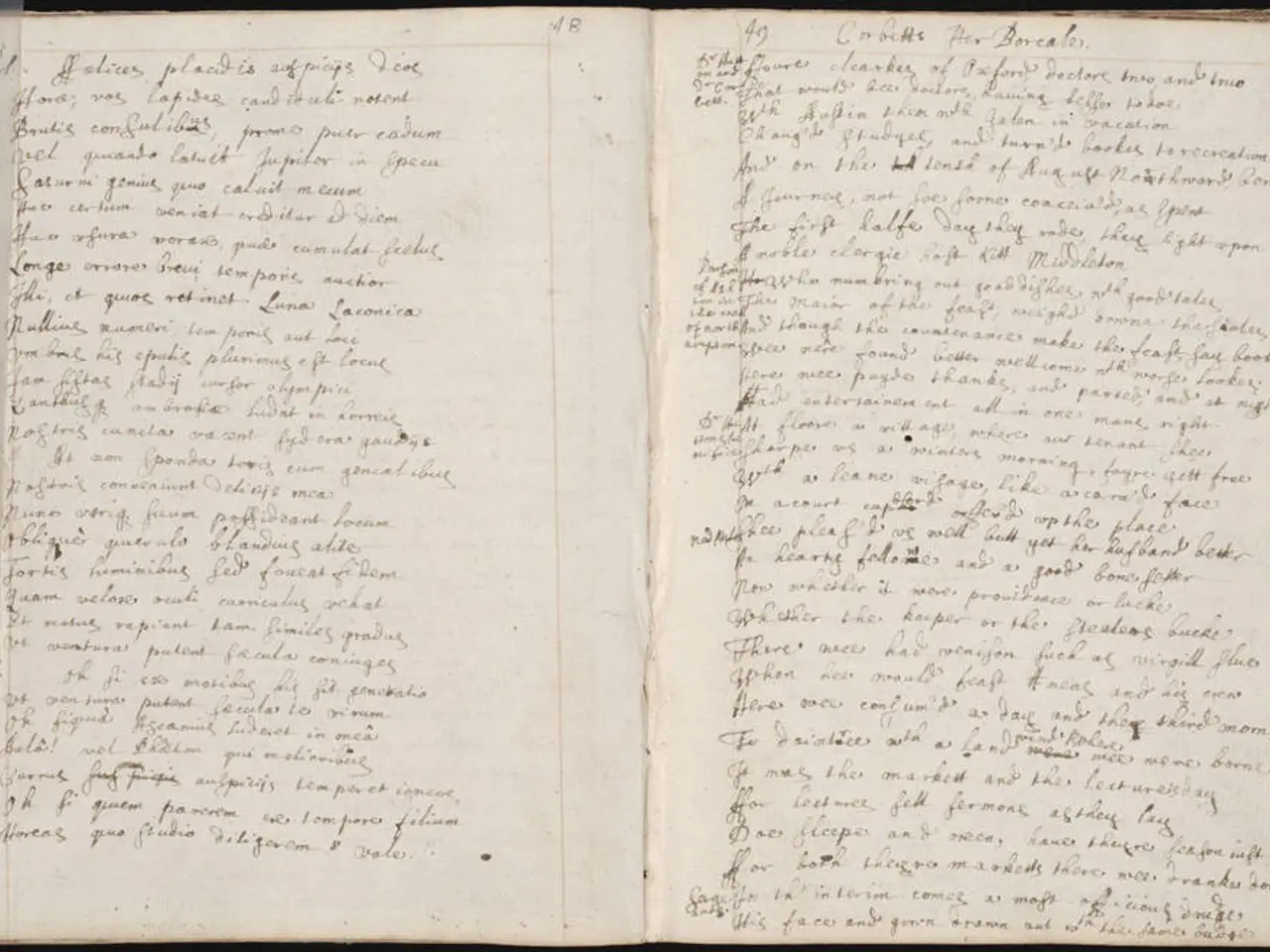European lawmakers have also voiced their worries towards the state of affairs in the Middle East region.
In the heart of July 2025, the government of Israeli Prime Minister Benjamin Netanyahu faces a wave of criticism from European governments and citizens, as highlighted in a blog commentary by Christian Wolff. The focus of these criticisms revolves around the humanitarian crisis and alleged violations of international law in Gaza under Netanyahu's leadership.
Accusations of war crimes and genocide against Palestinians in Gaza, supported by evidence from UN and international bodies, are at the forefront of these criticisms. European lawmakers, including 40 cross-party Members of the European Parliament (MEPs), are urging strong actions such as suspending the EU-Israel trade agreement and imposing sanctions, claiming that the government is blatantly breaching the Geneva Convention and international humanitarian law.
However, European governments are divided on the nature and extent of these sanctions. While some countries like the Netherlands have imposed travel bans on Israeli ministers seen as extremist, the EU as a whole has been hesitant to impose comprehensive sanction packages. This reluctance is met with frustration from various quarters, including Israeli NGOs and international bodies, who call for more decisive action.
The political landscape in European capitals is shifting, with moves to recognize Palestine officially as a state signalling diminishing support for Netanyahu. Public sentiment within Europe is also turning against Netanyahu's government, with prominent European leaders calling for a ceasefire, humanitarian aid, and the release of Israeli hostages taken during the conflict.
The EU's response to these allegations has been a point of contention. Critics argue that the EU should take more effective measures, such as suspending funding programs like Horizon+, against Israel despite documented violations of the EU-Israel Association Agreement that demands respect for human rights.
Amidst these criticisms, it is important to note that Jewish individuals in Germany have a unique sense of security: the freedom to live as European citizens and the right to return or go home to Israel, the land of their faith, at any time. This dual security is a testament to the importance of promoting and ensuring Jewish life while contributing to peace initiatives in the Middle East, upholding Israel's right to exist and enabling a state for the Palestinians (Palestine).
The assassination of Israeli Prime Minister Izchak Rabin by a religiously fanatical, right-wing extremist in 1995 underscores the need for a government that gives peace a chance. In Germany, those who returned after the Holocaust and after 1990 have dedicated themselves to the development of Jewish life and engaged as citizens in German society.
Christian Wolff, a long-standing SPD member and former pastor of the Thomaskirche in Leipzig, is a prominent voice in these discussions. He is currently active as a blogger and consultant for church, culture, and politics.
However, it is not just the EU that is critical of Netanyahu's government. The convergence of Netanyahu and former US President Donald Trump, with both disregarding the rule of law, international agreements, and humanitarian law, is a cause for concern. The current scale of Israel's war against Hamas in Gaza involves mass killings of civilians and the total destruction of civilian infrastructure, violating humanitarian law.
The existence of the State of Israel must not be called into question, as it is part of the Middle East and obligated to create conditions for justice and peace. However, the Netanyahu government's disregard for international humanitarian law and its autocratic overriding of the independent judiciary is a matter of grave concern.
Furthermore, Israel's current military operations and aggressive settlement policy in the West Bank have not brought the Middle East closer to a peace outlook. The hope for a peaceful resolution to the conflict remains elusive, and the international community continues to watch with bated breath as events unfold.
In conclusion, the criticisms against Netanyahu's government are multifaceted, encompassing allegations of war crimes, calls for sanctions, and concerns about the government's disregard for international law and humanitarian principles. The EU, in particular, faces pressure to take more decisive action, with public sentiment within Europe increasingly turning against Netanyahu's government. The future of the Middle East peace process hangs in the balance, and the international community watches with hope for a peaceful resolution to the conflict.
- Politicians, including 40 European Members of Parliament (MEPs), are urging the EU to consider suspending the EU-Israel trade agreement and imposing sanctions, citing alleged violations of the Geneva Convention and international humanitarian law by the Netanyahu government in relation to the war-and-conflicts in Gaza.
- The ongoing war-and-conflicts in Gaza, along with Israel's policy-and-legislation regarding the Palestinian territories, have become general-news topics of extensive debate and criticism, especially from European governments, due to accusations of war crimes and disregard for international humanitarian law.





